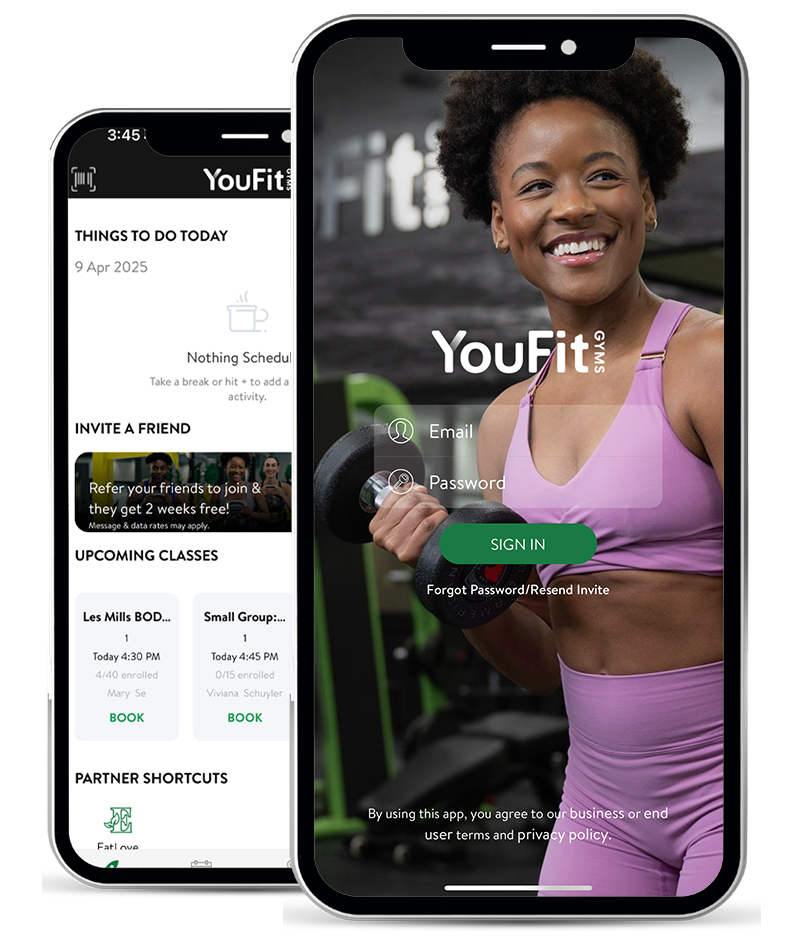© 2026 YouFit, All Rights Reserved
Our Terms of Use and Privacy Policy explain how we collect, use, and share your data, and your rights.
By continuing to use the website and all of its functions, you acknowledge and consent to the terms.

Join Today & Download the App
Find us on:
Member Policies
ADA Compliance
Terms of Service
Privacy Policy
© 2026 YouFit, All Rights Reserved
Our Terms of Use and Privacy Policy explain how we collect, use, and share your data, and your rights. By continuing to use the website and all of its functions, you acknowledge and consent to the terms.